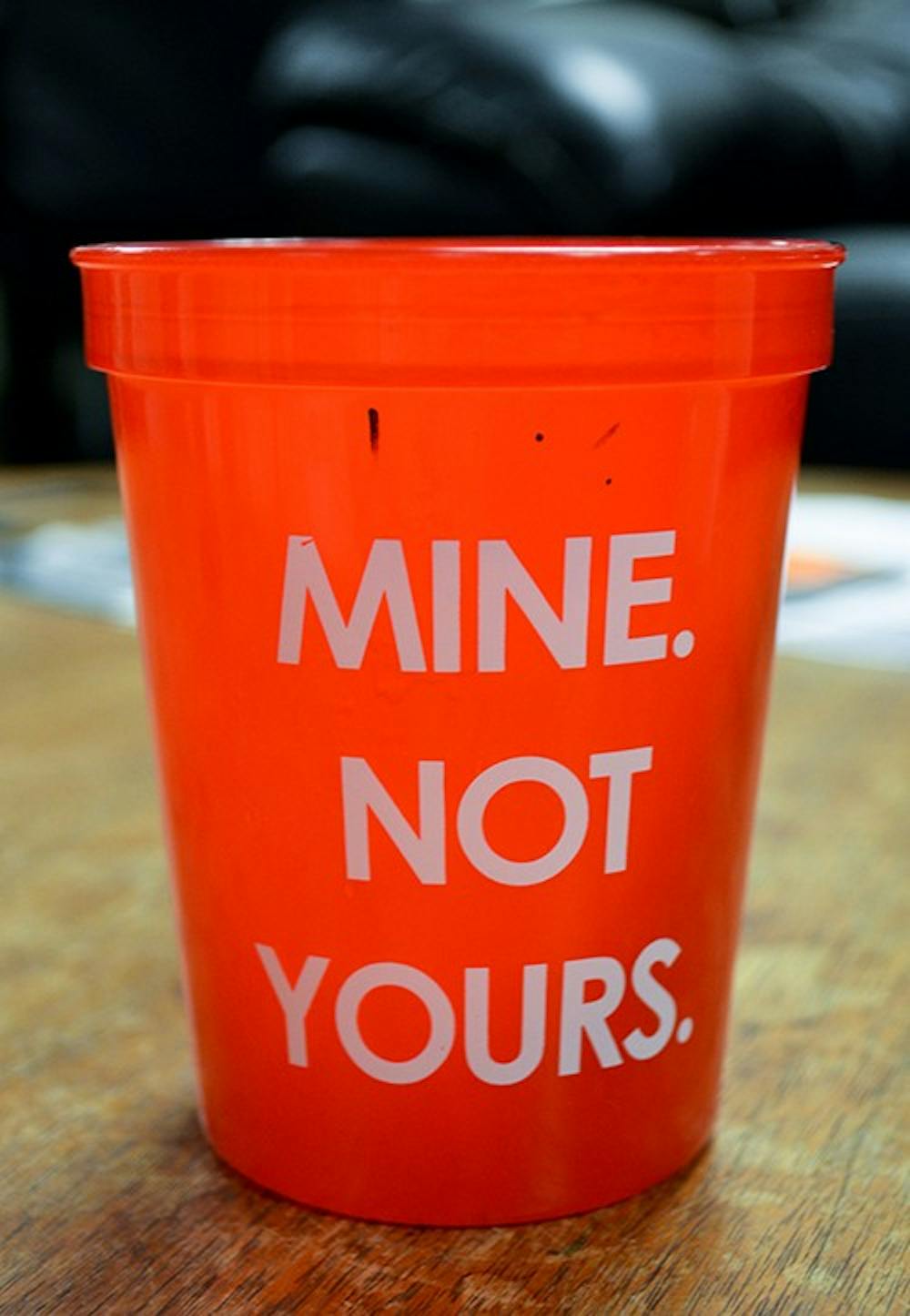The Student Health Advisory Board has started a new initiative to combat bacterial meningitis by distributing reusable drinking cups to the student body in order to help avoid the spread of germs.
The red cups say “Mine. Not Yours.” They are intended to remind students not to share the cup with other students. The Department of Public Safety’s phone number is also printed on the cups, along with three lines indicating 1.5 ounces of hard liquor, five ounces of wine and 12 ounces of beer.
SHAB president Michael Kochis ’15 said the idea was to “kill two birds with one stone” by printing the alcohol measurements and Public Safety’s phone number for risk reduction and management, both in terms of intoxication and hygiene.
“Right now, with meningitis on campus, the best way to stay safe is to only drink from your own cup,” Kathy Wagner, senior health educator for University Health Services, said. “If the drink does contain alcohol, we recognize that it’s safer to know what an actual drink size is, to limit the number of drinks you have in one night and to be able to keep track of how many drinks you’ve had.”
Wagner also noted that, contrary to popular belief, an alcoholic beverage will not kill bacteria, so sharing alcoholic drinks is just as likely to transmit bacterial disease as sharing nonalcoholic drinks.
Five thousand cups were ordered and arrived last Friday. Wagner said SHAB and UHS are working on a distribution plan. Students interested in obtaining a cup can also contact a Peer Health Advisor or pick one up in McCosh Health Center.
“The enthusiasm that we’ve seen from students who have received these cups so far is encouraging,” Kochis said. “We hope that all of the other students who will receive the cups will understand the importance of not sharing cups and keeping good hygiene for individual health and the health of the student body as a whole.”
According to UHS, there have been five cases of meningitis associated with the University since last March. The most recent occurred over the summer, when a student in a University academic program abroad was hospitalized.
Before the school year began, Vice President for Campus Life Cynthia Cherrey emailed students and parents encouraging them to continue taking precautions against meningitis in light of the recent cases.
“The bacteria that’s out there right now —we call it meningococcal meningitis, Type B —it’s not in the vaccine that students get before they come to Princeton. There’s not a vaccine for it available here right now in the U.S.,” Wagner said.
Meningitis is spread through respiratory and throat secretions, Kochis said, noting that the disease can be spread by sharing drinks, coughing, kissing or being in close proximity to a carrier of the disease.

Approximately 5 to 25 percent of people may be carriers of the bacteria without exhibiting any symptoms, according to a UHS report pamphlet, so students could get the disease by unknowingly sharing a drink with a carrier of the bacteria.
Symptoms of meningitis may include high fever, headache and stiff neck. Wagner said that students and faculty members should report directly to UHS should any symptoms appear, since early treatment can halt the progression of the disease.
“Ultimately, people have to take responsibility for their own health and understand there is a health issue with sharing cups,” Kochis said. “But our mission is to provide them with the resources so that they don’t have to share cups.”








